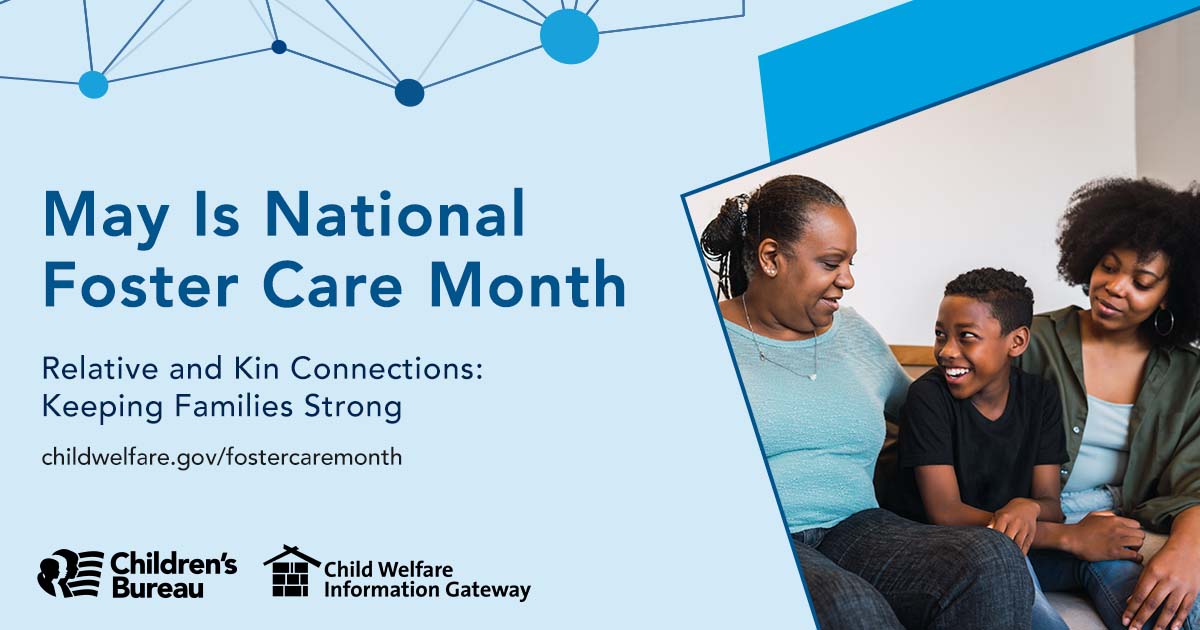Commemorating National Foster Care Awareness Month
Relative and Kin Connections:
Keeping Families Strong
Young people have the right to maintain important relationships with family
There are over 407,000 children and youth in foster care across the country, and 34 percent were placed with relatives or kin.
Kinship care, in its various forms, is important in meeting the needs of children involved in the child welfare system.

This year, National Foster Care Month focuses on how relative and kin connections keep families strong. When children cannot remain safely with their parents, we should prioritize placements with kin. Kinship care helps to maintain family connections and cultural traditions that can minimize the trauma of family separation.
Take time this month to raise awareness on how prioritizing kinship care, identifying connections rather than just placement options, and maintaining community ties makes a difference in the lives of children and youth and can shift the foster care system to one that truly supports families.
Key Facts and Statistics
- The term kin encompasses both relatives (those related by blood or marriage) and fictive kin (those who are unrelated but have such a close emotional relationship that they are considered like family to children and youth).
- When children cannot remain safely in their home, placement with relatives and kin —both formally through the child welfare system and informally through family arrangements—can increase stability, reduce trauma, and help children maintain a sense of family, belonging, and identity.
- Investing in culturally appropriate services and supports for relative and kin caregivers may help reinforce a child’s cultural identity and traditions.
- The inclusion of kin and extended family members in case planning expands placement and permanency options for children and youth when in-home care is not feasible.
- Millions of children and youth live with relatives outside of the formal child welfare system. Kinship navigator programs can provide critical supports for relative caregivers, including connections to resources and benefits, financial and legal assistance, peer supports, and more.
- Relational permanency is fundamental to the well-being of children and youth. Maintaining relationships with relatives and kin can help provide a sense of belonging for young people in care.
- Exploring relational permanency can lead to legal permanence. Of all children and youth waiting for adoption, 25 percent were placed with relatives. Of those aged 14 and above, 14 percent were placed with relatives.
- Providing equitable services and supports to grandfamilies can positively impact placement stability and permanency outcomes for children and families. Grandparent caregivers are more likely to be older than age 55 (62 percent), less likely to be married (44 percent), and grandparent caregivers outside of the child welfare system are less likely than foster parents to have health insurance (28 percent) (Children Living Apart from Their Parents: Highlights from the National Survey of Children in Nonparental Care).
